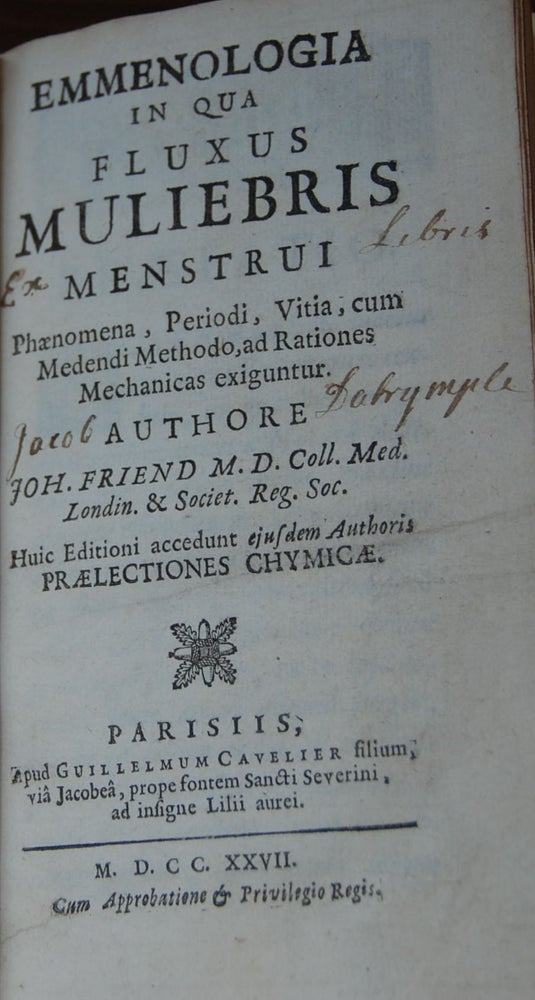
EMMENOLOGIA IN QUA FLUXUS MULIEBRIS MENSTRUI.; Phaenomena, Periodi, Vitia, cum Medendi Methodo, ad Rationes Mechanicas exiguntur. Authore Joh.Friend (sic ... Parisiis
[Paris]: Apud Guillelmum Cavelier filium, 1727. First published in 1703, this was first translated into English in 1729. 8th edition (?), 12mo, pp. [xiv]; [ii], xiv, 102; 31, [i]. (pp. 93-102 in the form of folding tables). Bound in contemporary mottled calf with gilt spine, unobtrusive renewal of headcaps and corners. Not in Garrison-Morton; National Library of Medicine p. 161; Wellcome Vol III, p. 66 (lists the 1703, 1720 & 1729 edition). This 1727 edition is the first with the two works issued together. Item #19216
A physician, Freind (1675-1728) accompanied English troops to Spain and Flanders before returning to England and embarking upon a successful medical career. He had a short career as an MP but his Jacobite sympathies resulted in a term in Gaol rather than Parliament. At the end of his life he was appointed physician to Queen Caroline. The DNB notes that "he was not only an elegant scholar but a man of genuine learning, and his History of Physic is still worth consulting." DNB further comments on the present work:" As indicated by the title, Freind belonged to the mechanical school of physicians ..." Freind notes in the preface that he will address all female ailments, but concentrates his attention to menstruation, which he argues results from a plethora in the body which escapes because of the upright posture of humans. The second work is an edition of Praelectiones Chymicae, in quibus Omnes Fere Operationes Chymicae ... Paris: 1727. These lectures, originally published in 1709 were delivered 5 years earlier. Dedicated to Sir Isaac Newton, Freind "attempts to explain all chemical operations upon mechanical and phyical operations." The appendix contains the criticism that was issued in Acta Eruditorum (1710) and his answer.
Price: $600.00 save 20% $480.00

